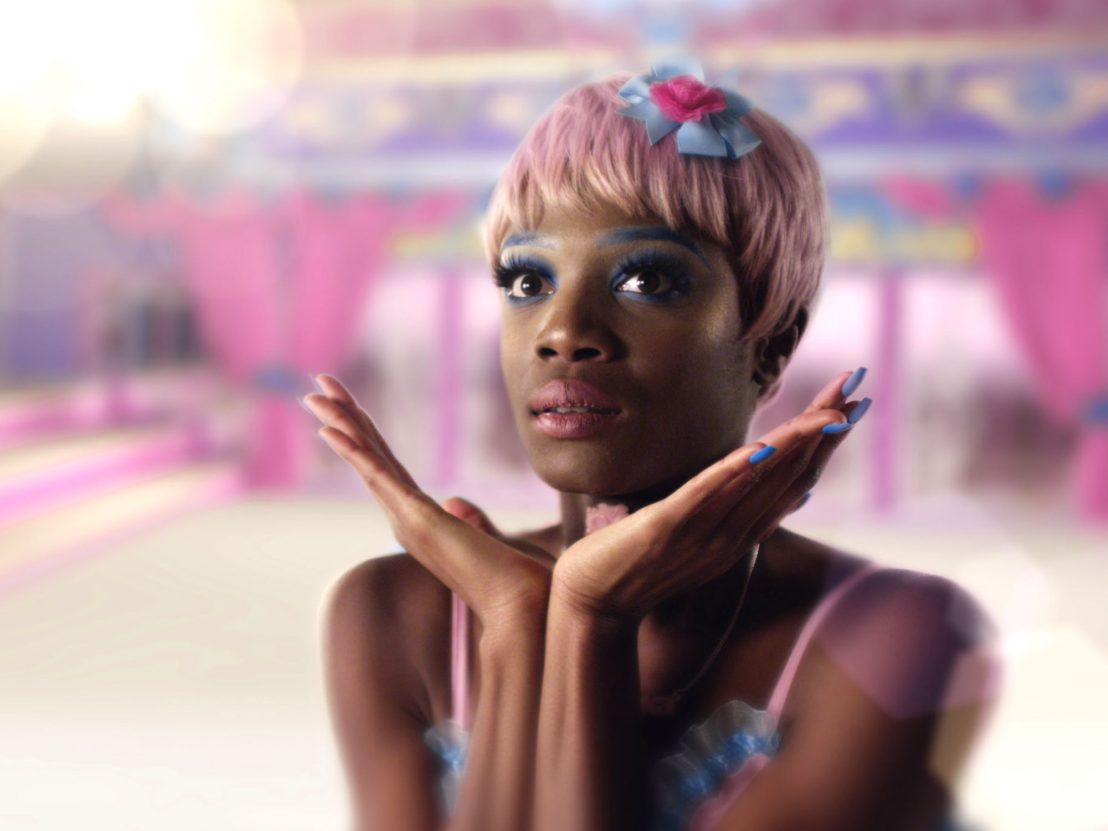
Personal recommendations to seek out during the upcoming edition of the UK’s biggest film event.
Eclecticism is the whole point of an event like the BFI London Film Festival. It’s not just that the programme’s multifaceted range of titles vary massively in content, format and provenance, but also that there are so many films (225 features!), all running in parallel through a cine-map of different London venues, that no one person can possibly hope to see anywhere near everything in the 12 days available. So unless you are prepared to go lucky dip and to choose so arbitrarily that everything is a Surprise Film, you too must be eclectic yourself in your approach to the festival.
This might involve due diligence, cross-referenced calendars, extensive research, Ouija boards and elaborate Venn diagrams, all in aid of charting a route through the festival programme that is perfectly customised to your own tastes. It is also prudent, however, to seek expert advice and advocacy – and there is nobody more expert than the programmers themselves. For while they love each and every selection that they have made for the film festival, they are in a prime position to direct you to their more easily overlooked choices. Here, presented in no particular order, are some of the programmers’ top picks from this year’s programme.
An eccentric auteur shoots a schlocky B-movie in an abandoned hospital, his wisecracking crew flaunting their wokeness, and guileless starlet Mabel swerving the advances of her smarmy co-star. Opening with an ironic Pauline Kael quote, this is all set to be a witty insider take on the perils of low-budget filmmaking. And then the busload of ‘freaks’ arrive, a supporting cast of physical outsiders, including Rosenthal (Adam Pearson from Under the Skin), who has neurofibromatosis.
While everyone falls over themselves to welcome these dryly cynical newcomers, Mabel struggles with her own response to Rosenthal: by turns patronising, fascinated, fetishistic, and romantic. As the day draws to a close, though, the set’s well-meaning facade turns out to be a sham, and the misfits are left to spend the night in the abandoned hospital. And then the real fun begins. A riot of humour and formal slipperiness, the film dives into thorny issues of screen representation with intelligence, wit and thrilling cine-literacy. Kate Taylor
You are invited down the rabbit hole to land in a candy coloured world of artificiality peopled by feminine perfection. Then enter the beauty parlour of Figurehead, embodied by the artist herself, Rachel Maclean, who lectures her cosmeticised subjects on Western aesthetics, assisted by the latest and most attractive surveillance technology.
What is she saying about the role and the power of art? Have (male) artists, and sycophantic (male) critics, been the omnipotent creators of the ideas and images of beauty and taste that dominates us today? How are we to find alternative visions when our cultural norms are all encompassing? Maclean’s (literally) iconoclastic film insists we ask these questions but also shows us the dangers of doing so. Confronting the system could mean we end up as meat. But resistance isn’t futile; our sisters from the past, the Suffragettes, return to lead the charge. Helen de Witt
We’ve seen too many films in which (predominantly female) sex workers are either punished for their supposed indiscretions, or reach life-changing epiphanies which see them turn their backs on their chosen profession in favour of a more ‘wholesome’ path. Daniel Goldhaber’s thrillingly sex-positive techno-horror Cam is refreshing in many ways, not least in how it refuses to pander to conservative assumptions about the so-called amorality of erotic entertainment. The story revolves around an ambitious cam-girl who finds herself faced with an uncanny online doppelgänger, determined to steal her identity and destroy her life.
Goldhaber wrote the film with close friend and former sex worker, Isa Mazzei, and her perspective lends not just a sense of accuracy, but deeper authenticity which engenders an implicit sense of trust in the material. Terrifying for all the right reasons, Cam offers a nightmarish yet progressive view of the adult entertainment industry, taking the shame out of sex work. Michael Blyth
Chilean director Dominga Sotomayor won the Best Director Award at this year’s Locarno Festival for her third film, a tale of three young people Clara (10), Sofia (16) and Lucas (16), experiencing desire and disappointments in the run up to a New Year’s Eve party. Set in 1990 when Chile was negotiating its return to democracy following Pinochet’s dictatorship, it uses the aspirations of an ecological commune to reflect on the wider changes in the nation state.
Drawing on the director’s experience growing up in an isolated environmental community at the foot of the Andes, the film is both a coming-of-age tale and a delicate portrait of a cluster of people tested by the demands of the situation in which they find themselves. There is something very Chekhovian in the piece’s construction: the prioritisation of mood, the delicate choreography of the comings and goings, lean dialogue, and a healthy dose of wry, subtle humour. A gorgeous piece of filmmaking. Maria Delgado
The words that come to me when I think of Freedom Fields are sisterhood, determination, and defiance. The film charts six years of Libya’s nascent national women’s football – a complex journey, to say the least. Beautifully shot, subtly told, by turns moving, infuriating and exhilarating, this is a celebration of an incredible group of women that you simply must meet for everything they represent – not only for freedom, the power of team, the resilience of getting up over and over again and achieving small but significant victories against all odds, but also because if you have no knowledge of what the complex post-Gaddafi situation in Libya looks like, then this film would be a great place to start.
Behind the camera, British Libyan director Naziha Arebi has been no less fearless and energetic herself in bringing the film – her debut feature – to screen over the last six years. One of the great pleasures of tracking films over years, as I have with this one, is to see their power unfurl as they meet an audience for the first time. I cannot wait to introduce LFF viewers to Naziha, to Fadwa, Nama, Halima and their team – an inspirational young generation, trying to build a better future. Elhum Shakerifar
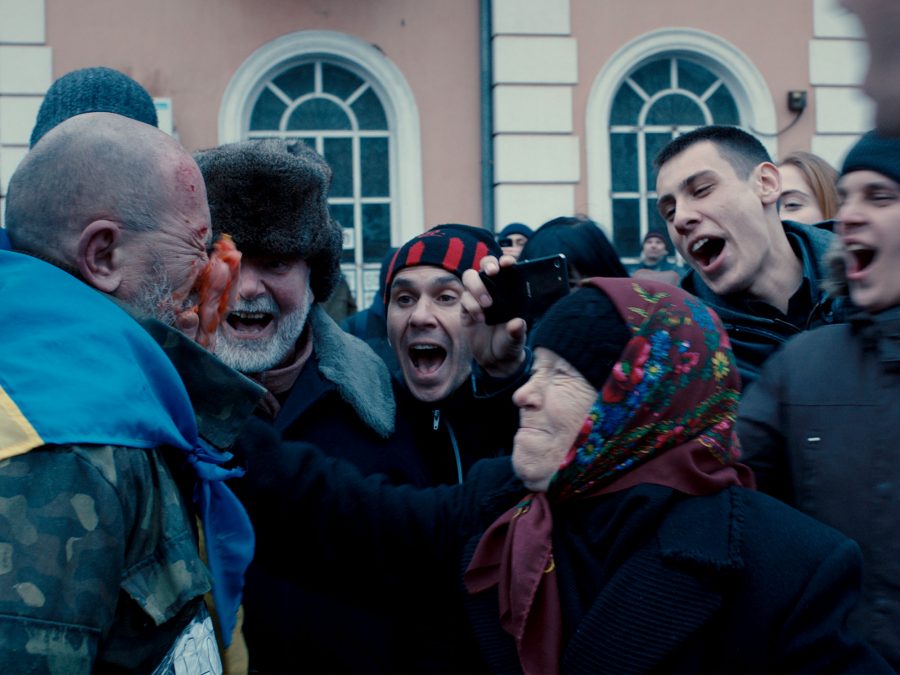
Sergei Loznitsa is one of the most prolific ‘post-Soviet’ filmmakers. He made his name with his outstanding documentary films, among them Maidan, recording the protest movement in Ukraine in 2014. His fiction films include My Joy, In the Fog, and A Gentle Creature, providing some of the most striking analyses of the Soviet and post-Soviet experience yet made.
His fourth feature, Donbass, which won Best Direction in the Un Certain Regard section at Cannes this year, is his powerful commentary on the continuing war in Ukraine. Consisting of 13 episodes, there is no attempt to explain them or to create a conventional narrative. Principally based on amateur videos posted on the internet and referencing TV news coverage, Loznitsa provides a nightmarish and grotesque ‘tour de force’ embracing violence, bureaucracy, and the absurd. Peter Hames
We know from the movies, if not from personal experience, that teenage friendships can be toxic. Think of the heady combination of sex, violence and voyeurism in films like Heathers and Funny Games. Sticks and Stones sees buddies Simon and Bjarke careering down a similarly destructive path when a seemingly benign school media project provides them with the opportunity to critique life in their nowheresville small town. Camera in hand, the boys begin their social documentary ‘Planet of the Apes’, a naturalist take on their declining locality.
Both Simon and Bjarke have some level of dysfunction at home, which is gradually revealed by the ever more extreme methods of their ‘project’. Questioning both the destructive power of machismo and unthinking monetary pursuit, director Martin Skovbjerg’s brave and timely feature debut is both confrontational and thought provoking. Simon and Bjarke’s antics may make you gasp, but the carefully written script and sensitive performances will also make you care desperately. So perhaps the boys are not so many worlds away from David Attenborough after all. Sarah Lutton
This characteristically bizarre-but-inspired new film from Winnipeg’s weird and wonderful Guy Maddin – here working with Evan and Galen Johnson – is a supremely inventive reworking of the story of Alfred Hitchcock’s Vertigo. Brilliantly assembled from clips taken from countless films and TV series – identify them if you can! – set and/or shot in San Francisco, it chronicles a cop’s fateful encounter with a mysterious woman.
Here, the Jimmy Stewart and Kim Novak characters are represented by a wondrous array of actors (Rock Hudson, Joan Crawford, Karl Malden and dozens more); likewise, of course, the buildings, cars and props that figure in the storyline now have fluid identities. Consequently, besides the basic plot outline we have a marvellous meta-narrative, rich in surprise cameos (Chuck Norris!), odd digressions, haunting resonances and improbable erotic overtones. Crucially, while casting a fresh, philosophically stimulating light on cinematic storytelling, it’s also very funny. Madcap magic. Geoff Andrew
Robert Greene tells the shocking story of what happened to a group of striking miners in the small town of Bisbee, Arizona in 1917: some 1200 men, mostly immigrants, were rounded up and deported to the middle of the desert where they were left to die. The event tore apart families and created divisions in Bisbee and the surrounding county that linger to this day. To mark the centenary of this dark episode the townspeople re-enact it, and Greene brilliantly captures the magic moment when the artifice of storytelling and the alchemy of acting combine to make us forget that we’re watching contemporary performers pretending to be long-dead people. This movie-within-a-movie resonates with American atrocities past and very present.
Greene is one the most exciting filmmakers working in documentary today. He frequently mines the area of life where performance and reality intersect and he has hit a rich seam with this multi-layered film, his sixth feature. The sheer audacity and originality of the exercise makes it a must-see. Christine Bardsley
Roar Uthaug’s immersive disasterpiece The Wave played the LFF in 2015, keeping audiences gripped with its all-too-real depiction of an 80m tsunami trouncing the Norwegian countryside. John Andreas Andersen’s follow-up turns up the carnage to 11: rural geologist Kristian Eikjord (Kristoffer Joner), who predicted the first film’s seismic shifts, is now a loner, estranged from his family after suffering a mental breakdown. Kristian has survivor’s guilt, and, after acting on a tip-off from a former colleague, begins to worry that more ructions are to follow, this time ripping apart the big city – Oslo – where his wife and children live.
Kristian’s is-he-or-isn’t-he-crazy mania only adds tension to The Quake’s ominous build-up; indeed, an incident at the opera house may well be a false alarm. Many, many other films have used this card, but Joner – together with the estimable Ana Dahl Torp as his ex-wife – plays it for naturalism, making for an interesting and empathetic hero, which only elevates the exploitation elements of the story. Along with The Guilty, The Quake is a great example of how genre material can be humanised without sacrificing suspense. Damon Wise
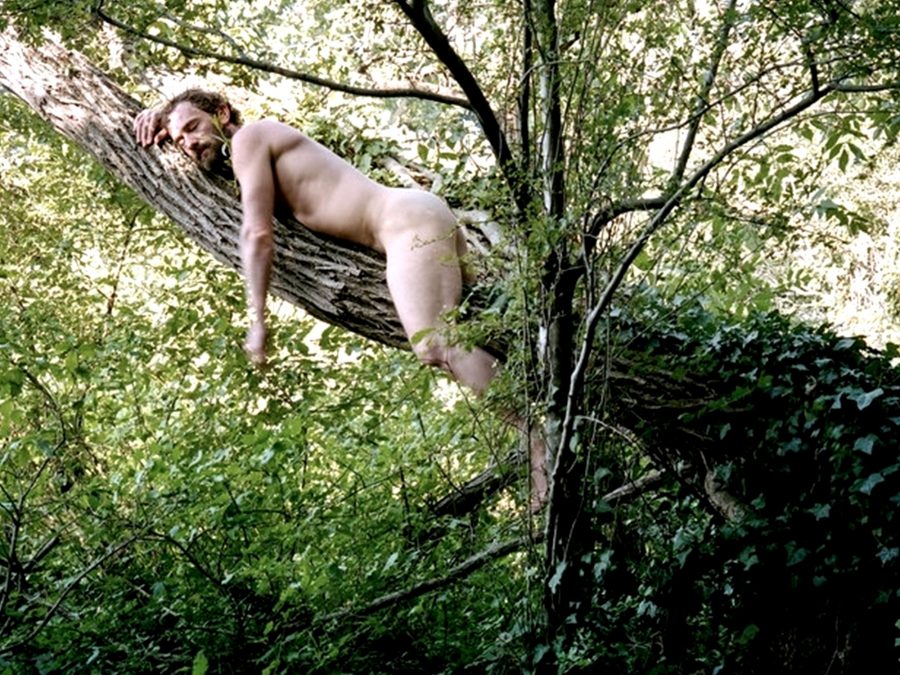
As the political shifts that have unsettled all of us in recent years continue to reverberate, it’s been fascinating to see their effects on independent filmmakers globally this year. As a result, I have genuine admiration of the artistry behind all my selections this year, but a special place is reserved for the wonderful novelist and filmmaker Xialou Guo who has delivered another entirely unadorned and disarmingly compelling essay film. As in her previous work, she navigates themes of migration, aspiration, home and the flow of capital, but this time the shadow of Brexit looms large.
Whilst the rhetoric on both sides of the referendum focused on articulating the value and place of economic migrants, Guo’s focus is on her immediate circle – a group of intellectual migrants; people whose migrations haven’t been precipitated by financial hardship but by an age-old curiosity to have new experiences and live in different places. Having made the London borough of Hackney home for over 15 years, Guo gleans fascinating insight into the shifting nature of community in the capital, demonstrating unequivocally the unique perspective on Britishness that belongs to the migrant artist. Come see it at LFF and get the added pleasure of hearing the thoughts of a filmmaker who is as fiercely intelligent as her work. Jemma Desai
Fresh from winning the Grand Prix at FID Marseille Spanish, artist Dora Garcia’s first feature film is a compelling experimental documentary circling around the work of artist, writer and psychoanalyst Oscar Masotta – a central figure in the cultural life of Argentina from the 1950s to the 1970s. From the 1960s onwards Masotta staged a series of remarkably prescient ‘happenings’ which foresaw the rise of militarisation in the Spanish speaking world and particularly the disappearances in Argentina.
With a kinetic camera Garcia captures a series of contemporary restagings of the works and follows the reactions of the participants as they try to make sense of their experiences. While the film captures the fear and uncertainty of past (and potentially future) trauma it equally finds humour in the everyday encounters the public have with these avant-garde works from another time, and makes an effective argument for art’s potential to help us to confront life’s darker side. Benjamin Cook
Making use of his own family history and research on the connections that link the themes of migration and money, Swiss director Markus Imhoof delivers a holistic and observational cinematic study of the current refugee crisis. Imhoof sets Eldorado apart from other documentary contributions on the topic by telling the story of how his family welcomed a young Italian refugee during World War Two, a striking and eye-opening parallel to nowadays when European households are not hosting those in transit and in need of care.
The film digs deep into the Italian and Swiss systems in place to process the arrival of displaced people, coldly designed to aim at marginalisation and repeal instead of integration. With an impactful and skilful balance of factual information and personal testimony, Eldorado is a stirring portrait of the human tragedy that Europe persistently allows to take place within its invisible but much too real borders. Don’t look away from this one. Ana David
Filmmaking as a balm for battered souls, South Korean writer/director Shin Dong-seok deftly balances tragedy and mystery in this astonishingly assured debut, a quiet standout from our Love strand. You’d be forgiven for finding the premise unfathomably sad, but Last Child proves to be as narratively gripping as it is emotionally acute.
Six months on from his death, Eunchan’s parents are still wrenched apart by grief. Misook (Kim Yeo-jin) takes no solace in the fact that her son died a hero, having saved a schoolmate from drowning. In contrast, her husband Sungcheol (Choi Moo-seong) is proud to launch a scholarship in the teenager’s name. He also welcomes Kihyun (Seong Yu-bin), the struggling misfit their boy rescued, into the couple’s interior decorating business as an apprentice. Cue the unravelling of a tangled web of secrets, culminating in a dramatic final act that earns every second of its catharsis, anchored by three extraordinarily textured performances. Manish Agarwal
The 62nd BFI London Film Festival runs 10-21 October. Check out the full programme at whatson.bfi.org.uk/lff/
Published 1 Oct 2018
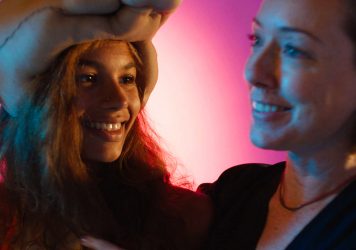
Stumped on what to book for this year’s festival? LWLies are on hand to help out.
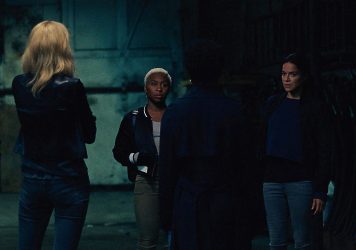
The festival’s 62nd edition kicks off with the international premiere of the British director’s fourth feature.
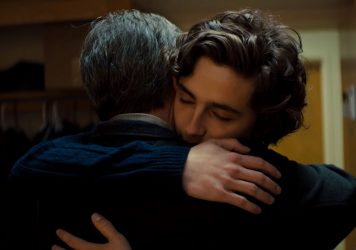
Big names, hidden gems and arthouse favourites head to the capital this October.